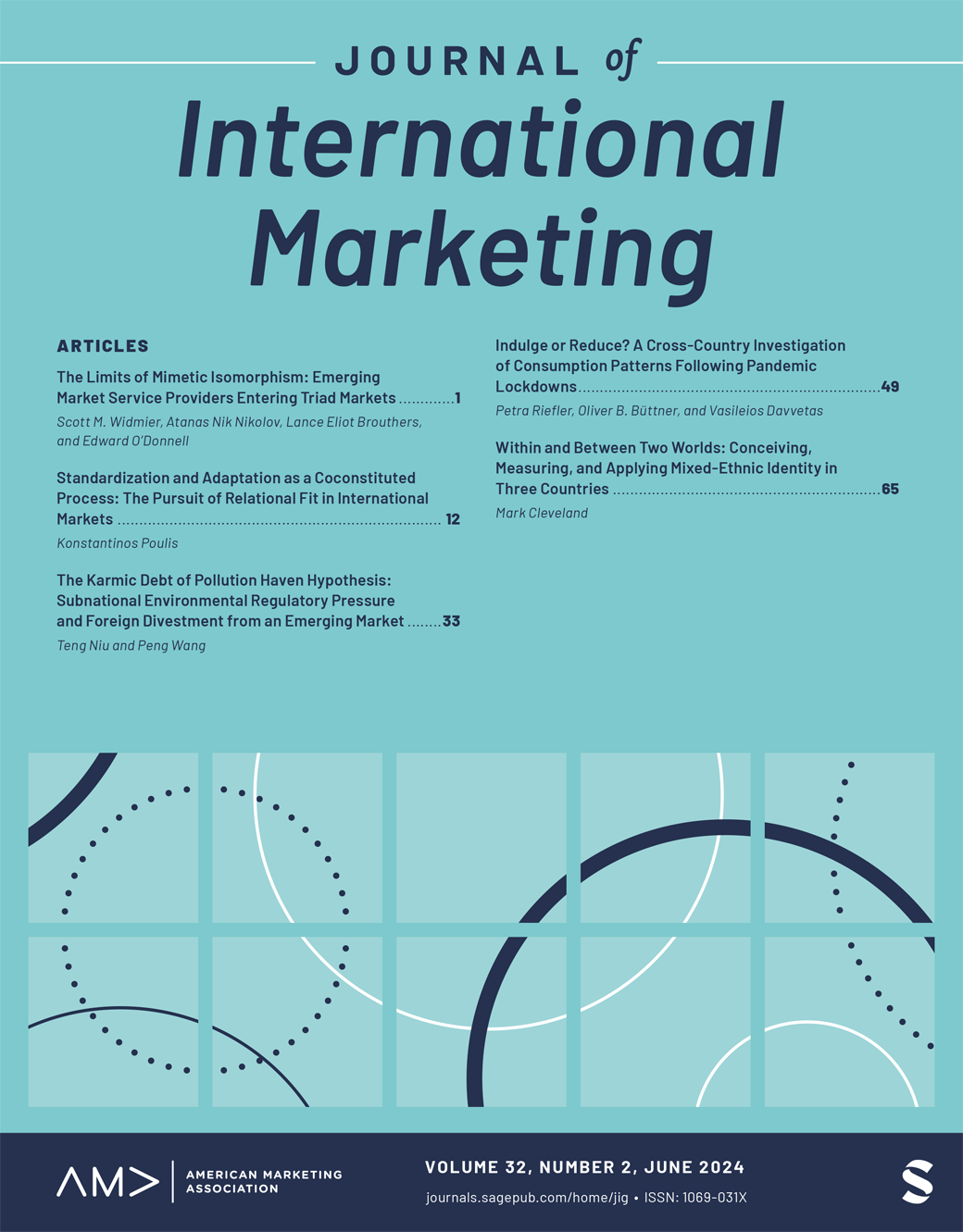Synergy Versus Trade-Off: The Influence of National Philanthropic Environment and Industry on the Relationship Between Research and Development and Corporate Social Responsibility
IF 4.9
2区 管理学
Q1 BUSINESS
引用次数: 6
Abstract
International marketing research has demonstrated that research and development (R&D) and corporate social responsibility (CSR) are firm capabilities that can lead to competitive advantages in the international marketplace. A synergy versus trade-off dilemma on the R&D–CSR relationship has emerged as an important topic in the literature. The synergy approach suggests a positive link between R&D and CSR, whereas the trade-off approach suggests a negative link. The authors employ the resource-, institution-, and industry-based views to clarify this dilemma by examining two moderators at the country and industry levels. The authors envision that home-country national philanthropic environment (NPE) influences whether managers should take synergy or trade-off approach because NPE reflects the institutional pressures for firms to be more philanthropic. Further, because research finds that CSR differs between manufacturing and service firms, this industry categorization is hypothesized to moderate the effects of NPE on the R&D–CSR relationship. Estimating a hierarchical linear model with a sample of 888 firms across 15 countries, the authors show that in high-NPE countries, there is an R&D–CSR synergy, and in low-NPE countries, there is a trade-off. Furthermore, these relationships are relevant only within service industries rather than manufacturing industries.协同与取舍:国家慈善环境与产业对研发与企业社会责任关系的影响
国际市场营销研究表明,研究与开发(R&D)和企业社会责任(CSR)是企业在国际市场上获得竞争优势的能力。研发与企业社会责任关系中的协同与取舍困境已经成为一个重要的研究课题。协同理论认为研发与企业社会责任之间存在正相关关系,而权衡理论认为二者存在负相关关系。作者采用基于资源、制度和行业的观点,通过考察国家和行业层面的两个调节因素来澄清这一困境。作者设想,母国国家慈善环境(NPE)影响管理者是否应该采取协同或权衡方法,因为NPE反映了企业更慈善的制度压力。此外,由于研究发现制造业和服务业企业的企业社会责任不同,因此假设这种行业分类可以调节NPE对研发与企业社会责任关系的影响。作者对15个国家的888家公司样本进行了层次线性模型估计,结果表明,在npe高的国家,研发与企业社会责任之间存在协同作用,而在npe低的国家,则存在权衡。此外,这些关系只与服务业相关,而与制造业无关。
本文章由计算机程序翻译,如有差异,请以英文原文为准。
求助全文
约1分钟内获得全文
求助全文
来源期刊

Journal of International Marketing
BUSINESS-
CiteScore
8.70
自引率
17.20%
发文量
28
期刊介绍:
As the globalization of markets continues at a rapid pace, business practitioners and educators alike face the challenge of staying current with the developments. Marketing managers require a source of new information and insights on international business events. International marketing educators require a forum for disseminating their thoughts and research findings. Journal of International Marketing(JIM) is an international, peer-reviewed journal dedicated to advancing international marketing practice, research, and theory. Contributions addressing any aspect of international marketing management are published each quarter.
 求助内容:
求助内容: 应助结果提醒方式:
应助结果提醒方式:


